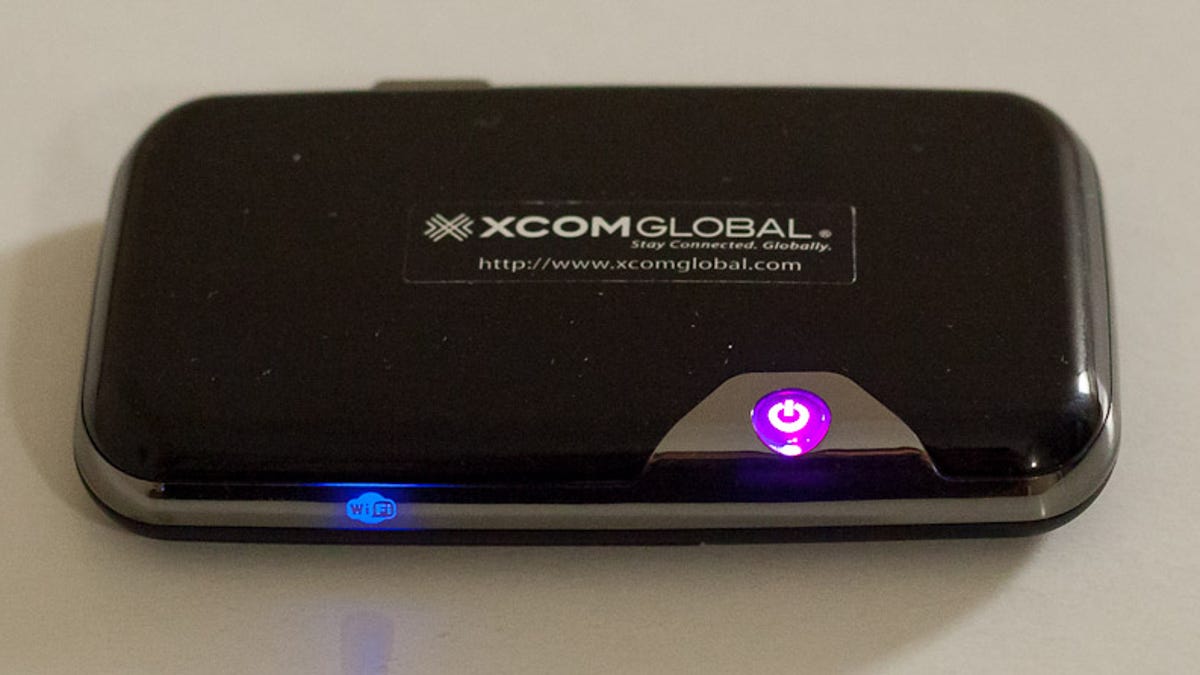XCom Global Wi-Fi service: 0 to addicted in 24 hours
Fifteen bucks a day sounds steep for wireless data, but it's a bargain when you're traveling internationally and faced with roaming fees. The technology had plenty of hiccups, though.

BARCELONA, Spain--Even with some significant engine trouble, it took me a day to go from zero to addicted to XCom Global's MiFi rental service for travelers.
TheInter Communications subsidiary offers a handy service--$14.95 a day to rent a mobile MiFi network access point with unlimited data access when you're traveling abroad.
The price looks painful until you compare it to the alternative: I just paid my French carrier, SFR, a whopping 19 euros (more than $25) for a measly 40MB of data while I'm at the Mobile World Congress show here. And carrier gouging isn't the only problem; you also have to put your mobile data use on a major diet or quit cold turkey. The situation is so ugly that I've often resorted to buying new SIM cards locally even though it means my phone number won't work.
I've applied some Band-Aids for the international roaming problem. I stay in hotels with Internet access. I take advantage of Android 4.0, aka Ice Cream Sandwich, which lets me scrutinize which apps were using data then disable background data usage that for apps I don't need. I pre-cache maps with the Google Maps app before I leave home. But it's much nicer just to have my phone working as it ought to.
The MiFi router, equipped with a SIM card for a particular country and configured in advance, connects to the local mobile network, then whips up a Wi-Fi network that up to five devices can use. XCom Global offers more expensive plans for people traveling in many countries, and they offer their services in 195 countries.
You can turn the MiFi router on and off as needed, but I found it handy just walking around so I could check my e-mail and navigate the narrow streets near Las Ramblas in Barcelona. And of course, it works with a laptop, too. As a reporter at a tech show, I used it in Metro stations, at picnic tables, sitting in auditoriums for speeches, and even squatting on the floor with my laptop perched on a desk improvised from my backpack.
I came to view its purple light (a sign of a good connection) with a certain feeling of security. The connection was fast enough for my needs, which included watching occasional videos, uploading photos, and loading a lot of Web pages around.
But it wasn't all a bed of roses.
I had an almost comical series of problems. These I blame chiefly on MiFi.
The device worked flawlessly at first--until I tried to password-protect the network, which isn't encrypted by default. When using the browser interface to configure the MiFi 2372, I followed the manual's instructions incorrectly, I soon figured out. When I couldn't log on at all, I saw that I had selected one wrong option, and nothing I did would let me connect again to reconfigure it, much less to use it.
I'm not clear why MiFi has an option that lets you make the device useless, but I soon discovered the answer to my problems: the factory reset button and accompanying instructions to reconfigure the MiFi back to its Spanish settings. Alas, even this didn't work, though. A call to its toll-free Spanish number didn't go through, but I don't claim expertise in international dialing. A call to XCom tech support in the U.S. didn't answer the question, either.
Eventually I headed over to the Novatel booth, where it took a technician about a half an hour to resolve the matter. The big breakthrough happened upon removing the SIM card, but even then it took awhile to get it to respond.
I'll try the secure option again when I'm at more liberty to experiment. Obviously, that's far preferable, even when you're not at a trade show surrounded by hundreds of people whose smartphones rapidly latch on to any open network.
Another couple issues: The MiFi router doesn't work when plugged in, which is very inconvenient. Worse, the second battery XCom Global included didn't work at all in my case. Adding insult to injury, it turned itself on four times in two days, once in its case and three times in my pocket. Also, it's really unpleasant trying to decode what the status light means: red, yellow, blue, green, orange, purple, blinking or not--it's explained in the manual, but since when do people read manuals?
I also remember problems with the early days of dial-up Internet access, DSL, and Wi-Fi. Despite the difficulties, it was abundantly clear the technologies were a good idea. I have the same feeling about XCom Global's service.

